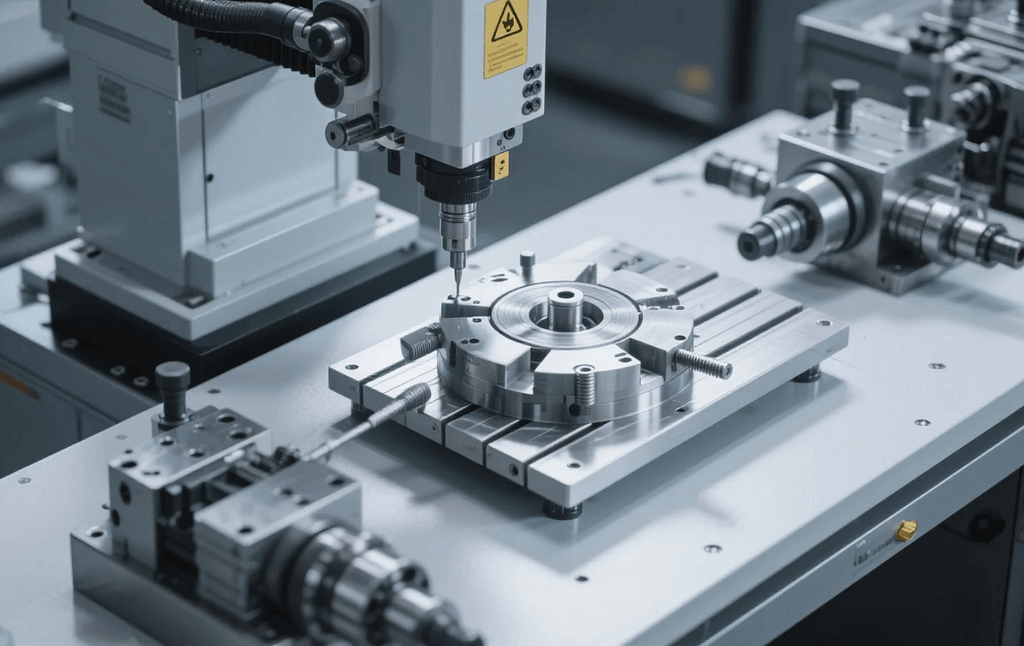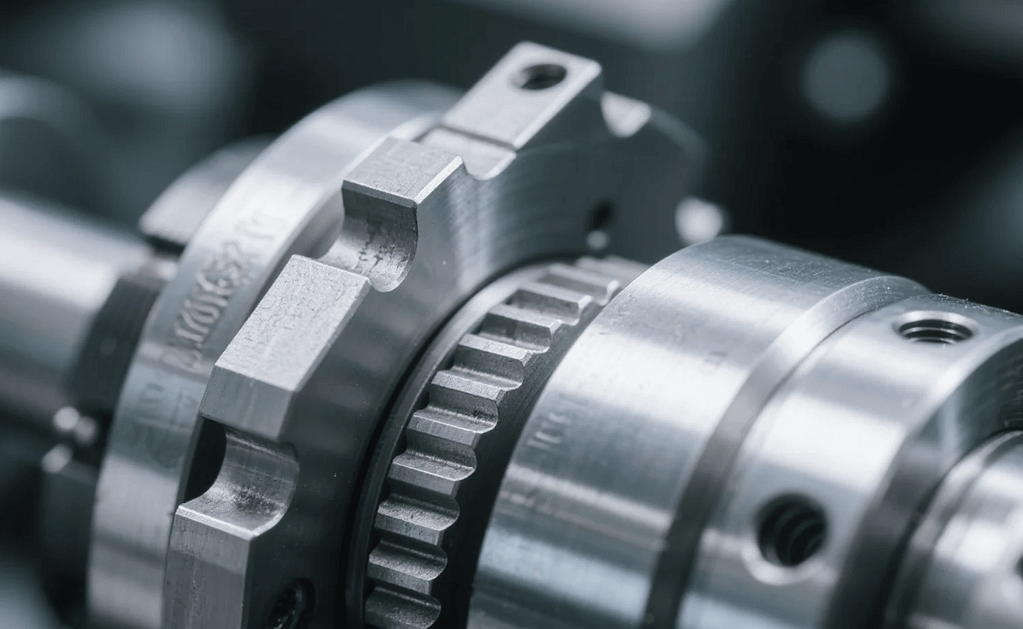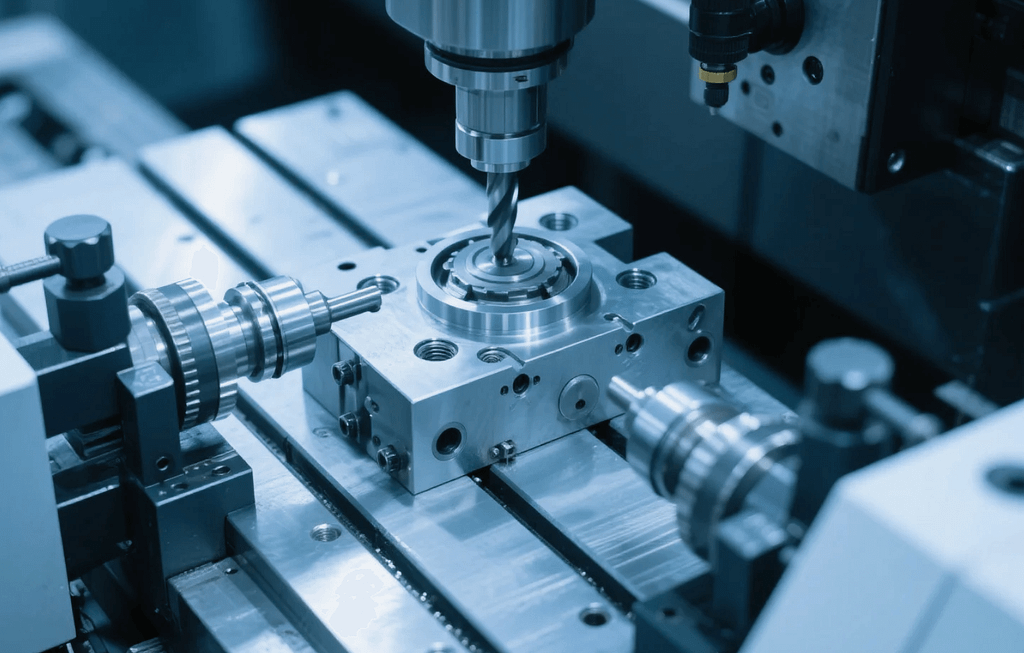The world of modern engineering is defined by a relentless push for accuracy, reliability, and miniaturization. Whether it’s a life-saving medical device, a mission-critical aerospace component, or a robust part for defense technology, the foundation of excellence lies in the manufacturing process. For sophisticated, complex parts, there is one process that stands above the rest: التصنيع الآلي الدقيق. This technology is not merely about shaping metal; it’s about achieving tolerances measured in microns, ensuring components perform flawlessly under the most demanding conditions. But is this high level of manufacturing capability truly essential for your specific product needs?
This comprehensive guide explores the core of التصنيع الآلي الدقيق, detailing its vital characteristics, its profound impact across key industries, and the tangible value it provides to product developers and engineers who demand nothing less than perfection. We delve deep into how this specialized process transforms raw materials into components that literally drive innovation forward. Understanding the applications and benefits of this discipline is paramount for any business looking to secure a competitive edge and build products that exceed industry benchmarks.
Unpacking the Core of Precision Machining

What Defines Precision Machining?
At its heart, التصنيع الآلي الدقيق refers to manufacturing processes that remove material from a workpiece to create a final product with extremely tight tolerances—often down to a few micrometers (millionths of a meter). This is a stark contrast to general machining, which focuses on larger tolerances and less demanding applications. The fundamental difference lies in the equipment, the control systems, and the expertise of the operators.
Modern التصنيع الآلي الدقيق heavily relies on advanced Computer Numerical Control (CNC) systems. These systems utilize pre-programmed software to dictate the movement of multi-axis cutting tools with absolute fidelity, ensuring repeatable and highly accurate cuts. The integration of high-speed spindles, thermal compensation techniques, and sophisticated in-process measurement systems is crucial. Furthermore, the material science involved is complex, requiring manufacturers to select and master the properties of high-performance materials like titanium, Inconel, specialized stainless steels, and engineering plastics. Simply put, this discipline is a marriage of cutting-edge technology and deep engineering knowledge.
The Distinct Features That Deliver Value
The inherent characteristics of this manufacturing process translate directly into significant advantages for the end-user product:
- Unmatched Accuracy and Consistency: The primary hallmark is the ability to maintain ultra-fine tolerances. This is critical for parts that must interact seamlessly within complex assemblies, such as gear systems in robotics or valve components in hydraulic systems. This consistency drastically reduces the risk of assembly issues and field failures.
- Superior Surface Finish: Precision machining produces surfaces that are not only geometrically correct but also incredibly smooth. This is vital in applications where friction or fluid dynamics are key considerations, such as medical implants or aircraft engine components, improving efficiency and longevity.
- Complex Geometries: Multi-axis CNC technology allows for the creation of intricate, non-linear shapes and internal features that are impossible to achieve with standard machining or other manufacturing methods. This design freedom enables engineers to optimize parts for weight, strength, and function simultaneously.
- Material Versatility: The high rigidity and power of modern التصنيع الآلي الدقيق centers allow fabricators to work with a vast array of challenging materials that are often required for their exceptional strength-to-weight ratio, corrosion resistance, or high-temperature performance.
Mission-Critical Applications: Where Precision is Non-Negotiable

The true value of التصنيع الآلي الدقيق shines brightest in industries where component failure is simply not an option. These sectors rely on this technology to transform innovative designs into tangible, reliable realities.
The Aerospace and Defense Sectors
In aerospace, every gram of weight and every fraction of an inch of accuracy can affect fuel efficiency and, critically, safety. Precision machining is the manufacturing standard for complex parts like:
- Turbine Blades and Vanes: These require exceptionally tight tolerances and superior surface finishes to maintain aerodynamic efficiency and withstand extreme heat and rotational stress.
- Actuator and Landing Gear Components: Parts that control movement and structural integrity must function perfectly and reliably every time under significant loads.
- Satellite and Launch Vehicle Components: The precise alignment of components in space-bound hardware is non-negotiable for successful deployment and operation.
The defense industry requires similar exacting standards for parts used in guidance systems, advanced weaponry, and robust communication equipment, where reliability in harsh environments is a fundamental requirement.
Advancing Medical Technology
The field of medicine continually pushes the boundaries of miniaturization and biocompatibility, making التصنيع الآلي الدقيق an indispensable tool. Life-saving innovation is often encapsulated in a tiny, precisely manufactured component:
- Surgical Instruments and Implants: From orthopedic implants (such as hip and knee replacements) made from titanium alloys to intricate tools used in minimally invasive surgery, accuracy ensures proper function and patient compatibility.
- Diagnostic Equipment Components: The precise alignment and movement of internal parts in MRI machines, CT scanners, and analytical laboratory equipment are critical for accurate data collection.
- Drug Delivery Systems: Miniature nozzles and fluidic channels used in drug pumps and micro-dosing devices require flawless internal surface finishes and exact dimensions to control flow rates precisely.
High-Tech Robotics and Automation
As industries worldwide move toward greater automation, the demand for highly accurate, fast-moving robotic components has exploded. The effectiveness of a robotic arm, a pick-and-place machine, or a sophisticated sensor system hinges on the flawless interaction of its moving parts.
- Gearboxes and Motion Control Systems: Precision-machined gears, shafts, and housing components minimize backlash and friction, leading to smooth, high-speed, and repeatable motion.
- Sensor Mounts and Enclosures: Components must be manufactured to hold delicate sensors in perfect alignment, ensuring the machine “sees” and interacts with its environment correctly.
- Semiconductor Manufacturing Equipment: The equipment used to fabricate microchips requires movement and positioning accuracy in the sub-micron range, a requirement that only advanced التصنيع الآلي الدقيق can reliably meet.
The Strategic Advantage of Partnering for Precision

For product developers and engineers, the choice of a manufacturing partner is as important as the design itself. A contract manufacturer specializing in التصنيع الآلي الدقيق does more than just cut metal; they offer a comprehensive partnership that spans the entire product lifecycle.
Design for Manufacturing (DFM) Collaboration
True experts provide valuable Design for Manufacturing (DFM) feedback early in the process. They leverage their deep understanding of material properties, tool paths, and geometric constraints to suggest subtle design tweaks. This collaborative approach can simultaneously reduce manufacturing costs, improve part strength, and accelerate time-to-market without compromising the critical tolerances. This early engagement is a strategic advantage, transforming a challenging design into an efficiently manufactured product.
Quality Assurance as a Guarantee
The quality control inherent in a التصنيع الآلي الدقيق facility is rigorous and multi-layered. Advanced inspection tools, such as Coordinate Measuring Machines (CMMs) and optical comparators, provide verification of every critical dimension. This strict adherence to quality protocols, often including process validation and complete material traceability, guarantees that the final component meets the most demanding regulatory and performance standards, thereby mitigating risk for the customer.
Investing in the Future of Your Product
Ultimately, choosing التصنيع الآلي الدقيق is an investment in product integrity and reputation. While it may represent a higher initial cost compared to general machining, the long-term value proposition is undeniable. The result is a part that lasts longer, performs better, and reduces the costs associated with failure, warranty claims, and downtime in critical operational environments. For any product whose success is measured by its reliability and accuracy, this technology is not a luxury—it is an absolute necessity.
By focusing on this level of detail and control, manufacturers like Captec Precision empower leading companies in aerospace, medical, and technology sectors to turn ambitious concepts into reliable, high-performance commercial products.
Frequently Asked Questions (FAQ)
Q: What is the main difference between general machining and التصنيع الآلي الدقيق?
A: The main distinction lies in the tolerance و equipment. General machining deals with larger tolerances (less accuracy required) and uses standard equipment. Precision machining focuses on extremely tight tolerances (often down to a few microns), utilizing advanced, multi-axis CNC machines, sophisticated measuring equipment (like CMMs), and expertise in thermal and geometric compensation to ensure near-perfect part consistency and accuracy.
Q: Which materials are best suited for التصنيع الآلي الدقيق?
A: Nearly any material can be precisely machined, but the process is most often applied to high-performance materials critical to demanding industries. This includes titanium alloys (for aerospace and medical implants), Inconel و Hastelloy (for high-temperature/corrosion resistance), specialized stainless steels, and high-performance engineering plastics where tight tolerances are needed for smooth mechanical function.
Q: How does التصنيع الآلي الدقيق benefit product longevity?
A: By achieving superior accuracy and surface finish, التصنيع الآلي الدقيق significantly reduces friction and wear between mating components. This precise fit and smooth surface minimize stress points and material fatigue, leading to increased operational efficiency and a much longer service life for the final product, especially under continuous or high-stress use.